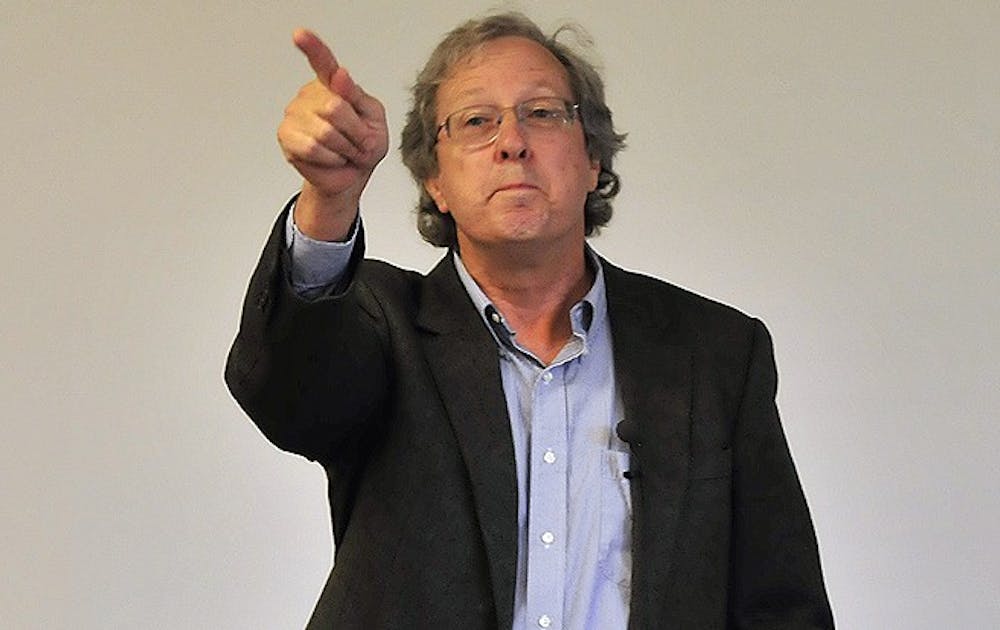Faculty leadership and engagement are critical in times of economic volatility, said Dean of Arts and Sciences Laurie Patton.
Patton and Thomas Robisheaux, Fred E. Schaffer professor of history, convened the first meeting of Arts and Sciences council for the academic year Tuesday. They shared their visions for the year with council members and reflected on the challenges the University faces as it enters a new era of higher education. Patton also discussed Duke’s fiscal standing, presenting both optimistic and cautionary notes on the University’s current state.
“We need to adapt our governance to meet the rapid changes upon [the University] and upon us,” said Robisheaux, who was instated as the council chair in May. “Landscape of higher education is changing across the country. It’s a time of challenges of funding, it’s a time where students and their families are anxious of the cost of education and perhaps an uncertainty of the future once they leave the University.”
He noted that universities, such as Duke, have a global imperative to promote innovative teaching, adding that new technologies such as online learning introduce new opportunities as wells as pitfalls.
“Is the council prepared to meet these challenges? Not as well as we would like,” Robisheaux noted.
The council meetings, he said, are not merely places for the mundane work, but should become a forum for robust discussion of new initiatives—a place where faculty members can frankly assess new and existing programs and ideas.
“Our goal is to make the council and the arts and sciences committees better positioned to take up new ideas, improve upon them and really make them happen,” he said.
Although the University is still “in the woods” financially, Patton noted that the University balanced its budget in April, determining a method to finance all of the institution’s programs and faculty.
Four main challenges have offset the University’s financial standing in the past few months: the underperforming endowment, the less-than-expected amount of grants for some departments, the increasing demand for financial aid and fewer retirements among faculty, Patton added. Although numbers are continually shifting, she noted that the demand for financial aid is growing at almost twice the rate that tuition is increasing.
“We will always spend more than we are comfortable with in order to hire dynamically as we want and need to hire. But in this environment, we need to be both strategic and visionary,” Patton wrote in an email following the meeting.
In terms of grants, the Pratt School of Engineering, comprised of 125 engineering faculty, reaped $71 million in awards in the 2011-12 school year while the 250 natural sciences faculty of Trinity garnered $73 million in awards, Patton said.
In the social sciences, new methods of research and teaching have been implemented, namely the new “flipped” gateway courses in Economics and the Education and Human Development Initiative—a collaboration between the social sciences and natural sciences, she said.
“Revenue can no longer be a dirty word in the academy,” Patton said. “What we need to think about is creating value for knowledge. I think we can do this while at same time maintaining academic standards that are the hallmark of a Duke education.”
Patton also emphasized the ongoing conversation on race at Duke.
There will be a focus on three different principles related to race this year—first, the generational differences in how people experience racial and ethnic identity, second, involving the community in discussions about race and difference and third, stories about race at Duke that need to be uncovered and told, she said. She added that responses to these themes for the 2012-13 year include the an advisory council on race and difference at Duke, which will be created in the Fall.
Get The Chronicle straight to your inbox
Signup for our weekly newsletter. Cancel at any time.

